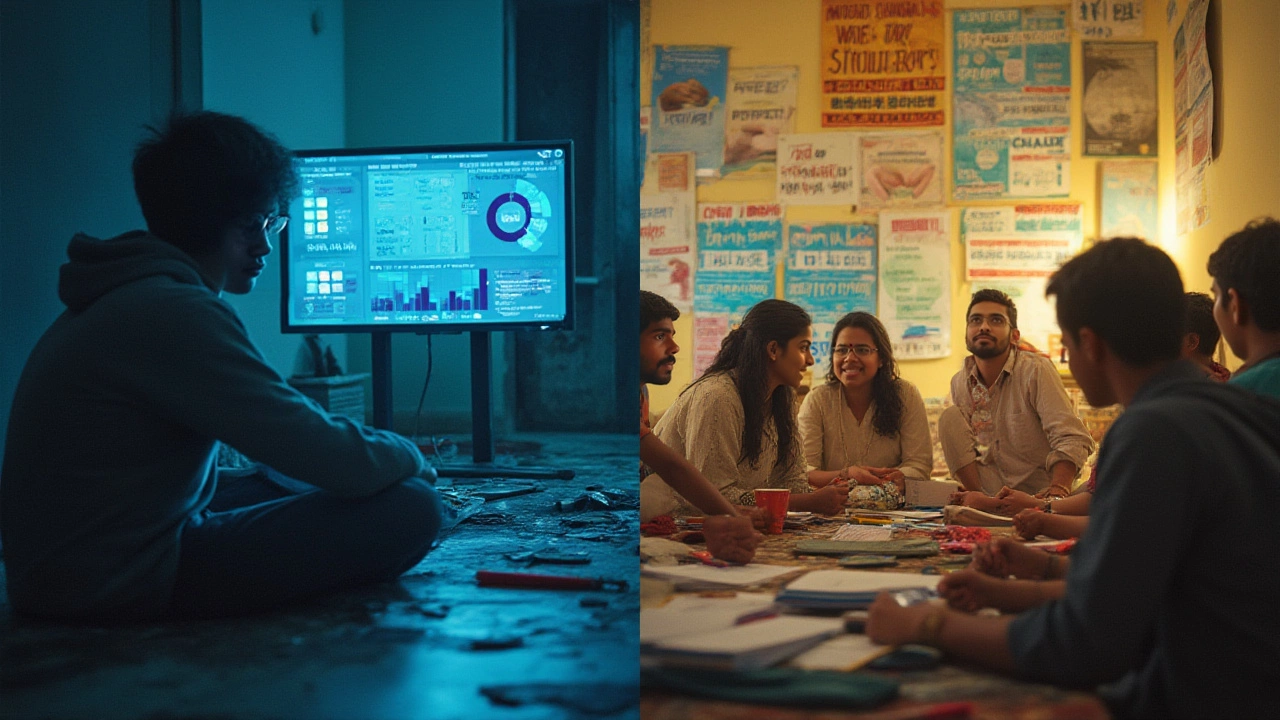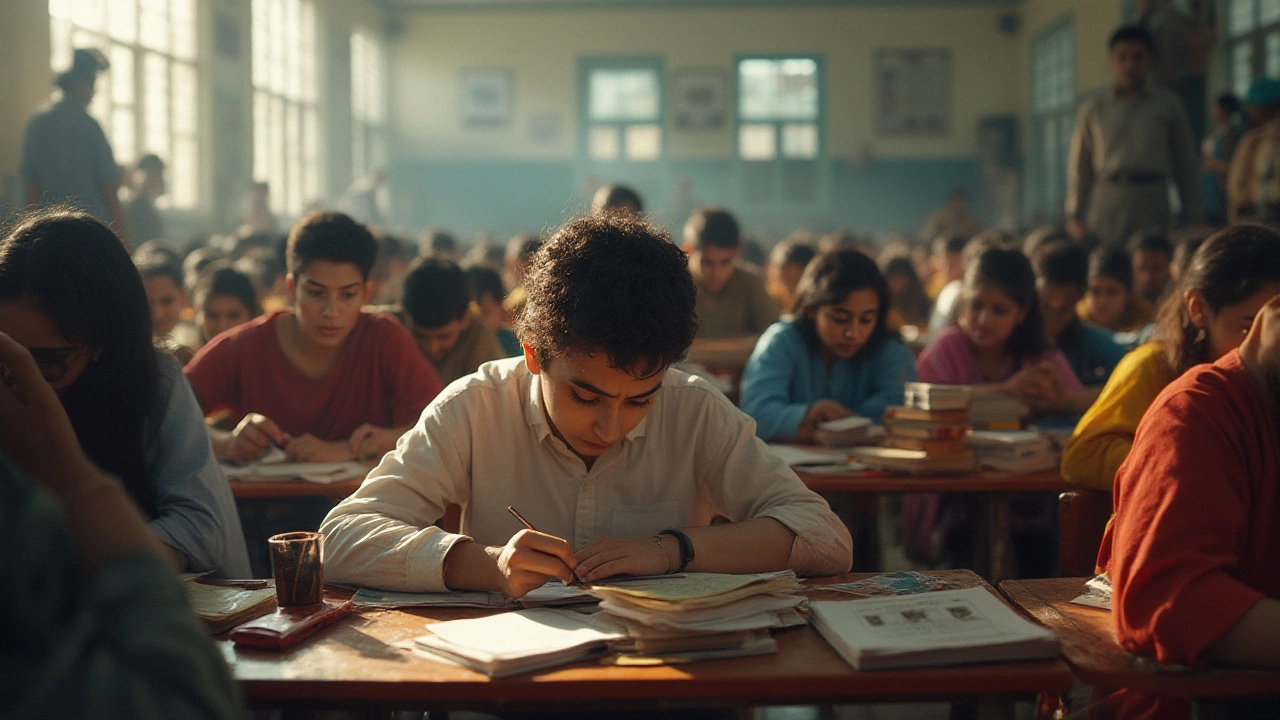Every year, millions of hopefuls huddle over exam booklets, but only a sliver return victorious. Some tests chew up nervous systems and spit out dreams like it’s just another Tuesday. You might think your finals are monstrous, but there’s a tier above—a place where exams make even straight-A students break a sweat. If you’ve ever found yourself ranting about how hard your latest paper was, just wait till you see what other students around the world are slogging through. These exams aren’t just hurdles; they’re olympic games of the mind.
What Makes an Exam the 'Toughest'?
Before dropping names, let's pin down what “toughest” actually means. An exam’s reputation as the world’s hardest rarely comes from complexity alone. It’s about the knockout blend of low pass rates, killer difficulty, crazy competition, and life-changing stakes. Some tests go viral for questions that could stump professors. Others are feared because—no pressure—your entire future might hinge on the result. People spend years preparing for these, sometimes at the cost of sleep, hobbies, and sanity.
What helps crank up the agony? For many, it’s how slim their chances are. Some exams boast pass rates as low as 1%—that’s not a typo. The resources people throw into preparing are wild too: continuous study for years, specialized coaching, mountains of sample papers, and even giving up anything resembling a social life.
There's also the psychological war at play. In countries like India and China, families pin their hopes and sometimes their financial security on one test. That pressure alone spikes difficulty to a whole new level. It’s not just about “knowing stuff”—it’s about stamina, speed, and keeping cool under jaw-grinding stress. Imagine 10 million students battling for a few thousand seats, an exam stretching over days, or interviews that chew you up for weeks. Some tests even get so notorious that dedicated curricula spring up just to tackle their style.
So, when you ask what’s the toughest, you’re really asking: where does the crossfire of competition, complexity, and life-altering outcome burn the hottest? Turns out, there’s real data behind the curtain. Let’s look at who’s fighting for that top spot.
The High-Stakes Contenders
The title of “No 1 toughest exam in the world” is hotly debated. But time and again, a handful always make the shortlist: India’s UPSC Civil Services exam, China’s Gaokao, Japan’s National Center Test, South Korea’s Suneung, and, in the West, things like the CFA (Chartered Financial Analyst) exams or the Mensa IQ Test. Each one is legendary, feared, and riddled with horror stories.
Let’s spotlight two especially notorious ones—UPSC Civil Services Exam and China’s Gaokao. In 2024, a whopping 1.1 million students registered for the UPSC Prelims. Only about 13,000 make it to the interview stage, and in the end, just around 900 get final selection into India’s most elite government jobs. That’s less than 0.1%!
The Gaokao puts an entire nation on pause. In 2023, over 12 million Chinese teens took it. Scoring high means a ticket to China’s elite universities—mess up, and your options shrink drastically. The pressure even inspires street-side therapy booths and parents camping outside schools praying for their kids.
Still, other insane tests deserve a mention. The USMLE for doctors in the USA, the Mensa International IQ test, IIT-JEE for engineering hopefuls in India, and even the bar exam in California. But UPSC and Gaokao regularly top polls, thanks to their sheer scale and crushing consequences for failure.
Want hard numbers? Check out the compare-and-shock stats below.
| Exam | Country | Candidates/year | Pass Rate | Preparation Time |
|---|---|---|---|---|
| UPSC Civil Services | India | 1.1 million | 0.1% | 2-3 years |
| Gaokao | China | 12 million | ~2% | 12 years (schooling) |
| Suneung (CSAT) | South Korea | 500,000 | 1-2% | Years of prep |
| CFA (Level 1) | Global | 200,000+ | ~42% | 6 months - 1 year |
| Mensa IQ Test | Worldwide | Varies | 2% | NA |

Inside the World's Toughest Exams
So what’s it actually like to take one of these monsters? The stories you hear can make your palms sweat even if you're just a casual observer. People who clear these exams don’t just finish a test—they survive a marathon. The UPSC is spread out in three phases: Prelims, Mains, and a face-to-face interview. Each stage wipes out vast numbers of candidates. The Mains alone has 9 papers. From essay writing to general studies and two optional subjects, candidates labor for hours across multiple days. The interview round is famous for twisting your logic, ethics, and personality inside out.
The Gaokao isn’t any more forgiving. It's stretched over two to three days, depending on the province. Students answer marathon-length questions on Chinese, mathematics, English, science, and more. The question patterns rarely repeat. A single point can mean the difference between going to Tsinghua University or missing out altogether. Parents often quit jobs months earlier to coach or simply manage the household so their child can focus. Rumors of students fainting during the test or getting sick are sadly real.
In South Korea, the Suneung is treated like a national emergency. Planes are grounded during listening comprehension sections. Neighbors tiptoe, and late students get police escorts to the venue. The stress level borders on unreal—think students sleeping in study rooms near their test centers for weeks beforehand to shave off commute time.
Why so intense? Because for most, these tests aren’t just academic stepping stones. They’re seen as one-way tickets to success. Fail, and social mobility doors snap shut fast. For those who pass, it’s hero status—your selfies with the result make you instant royalty.
Some call these exams a necessary evil, others call them outdated. But as long as seats and jobs remain scarce, the rituals and rigors of these mind-numbing tests continue.
Strategies and Survival Tips from Exam Veterans
People don’t just walk into these exams and hope for the best. Survivors have battle-tested strategies that make the difference. First up: consistency crushes cramming. Successful UPSC and Gaokao candidates often talk about steady, focused study for years, not months. They obsess over past papers, mock tests, and revision schedules tighter than a drum.
No one does this alone. Study groups are a lifeline, whether online or in-person. Pooling notes or tackling complex topics as a team often uncovers solutions solo sloggers miss. Coaching centers, especially in India and China, are booming industries for a reason. They don’t just teach content—they train you in exam style, handling pressure, and timing tricks.
Physical health is the secret weapon nobody talks about. You need energy for marathon sessions, so exercise, hydration, and enough sleep aren’t optional. Meditation and mindfulness have also become mainstream among high-achievers, especially for fighting pre-exam jitters and burnout.
No matter the prep, stress is brutal. Many admit to breakdowns—one survey said nearly 30% of Indian UPSC aspirants have faced clinical anxiety at some stage. Professional counseling, digital detoxes, and short, regular breaks are now part of the toolkit.
One key tip? Don’t ignore the marking scheme! For example, UPSC penalizes wrong answers and expects you to write clear, concise essays. Gaokao is famous for curveball questions—so flexibility and quick thinking count for as much as rote learning.
- Set realistic daily targets—tiny victories keep morale up.
- Practice with real exam papers under strict time limits.
- Don’t just memorize—understand concepts deeply.
- Use digital apps for flashcards and quick recaps.
- Stay connected with family and friends—you’ll need cheering squads.
These exams may be mountains, but plenty have made it to the top. Their biggest advice? Keep going. Progress isn’t always obvious, but it pays off on that final day.

Is It Worth the Hype—And the Hysteria?
Blink and you miss a year; fail and it feels like you've lost a lifetime. It’s no accident parents fast, pray, and stake everything on exam season. Clearing the world’s hardest test isn’t just a private victory. It brings life-changing perks—government jobs with security, university seats few can touch, bragging rights for generations, and sometimes, fame you never asked for.
But there’s a flip side. No exam should cost your wellbeing or sense of self. The stories that don’t make the headlines are often about burnout and disillusionment. Many education experts worldwide are now questioning if these outrageously tough tests are fair. Is it right to put so much pressure on kids at 17 or 22, knowing a single bad day can undo years of hard work?
Still, every system has its reasons, even if you or I might not love them. Countries with more seat-seekers than seats need ways to filter the crowd, and exams are their go-to tool. As long as success stories keep dazzling society, the myth—and madness—of the world's toughest exam will continue.
So next time you curse your syllabus, remember: there are tests out there where even caffeinated, sleep-deprived superheroes struggle. Survive one, and there’s barely an interview or challenge in life that’ll scare you again. That’s why majors like UPSC and Gaokao aren’t just exams—they’re rites of passage, and for the bold few who succeed, the world feels just a bit easier afterwards.

